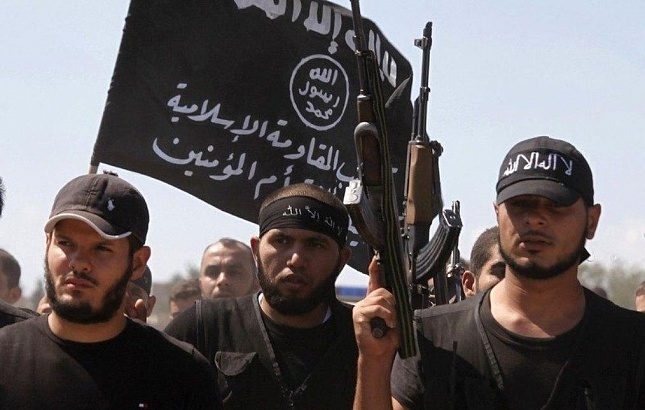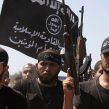
Number of Disillusioned North Caucasian Militants Returning From Syria Increases
Publication: Eurasia Daily Monitor Volume: 11 Issue: 189
By:

International observers have paid much attention to the fact that many foreigners are fighting against the Syrian regime of Bashar al-Assad. Tunisia holds first place among the countries of Asia and Africa, supplying volunteer fighters to the Syrian opposition forces (i100.independent.co.uk, September 11). Of the countries in Europe, Russia appears to be the primary source of volunteers to Syria as more than 800 fighters have gone to fight in the Syrian civil war (twitter.com, September 12). Chechens arguably comprise the majority among the combatants arriving in Syria from Russia. According to the author’s estimates, approximately 70 fighters are from Georgia (ethnic Kist from the Pankisi Gorge), 100–200 fighters are from Chechnya, and another 100–200 Chechens from Western Europe are fighting there as well, not to mention Chechens from Turkey and several Arab countries. The total number of Chechens from all countries combined could be as much as 1,500.
Many observers regard the participation of Chechens in the Syrian conflict as an attempt to damage Russian interests, although it is unclear why Chechens need to travel so far in order to do so.
To stem the flow of fighters to Syria, Russian authorities in 2014 started formal criminal proceedings against everyone fighting in the ranks of the Syrian opposition who are identified as Russian citizens (regnum.ru, September 23). For example, criminal cases were launched against Shahid Temirbulatov and Tamazi Mutoshvili while they were in Syria, and they now face up to ten years in prison (kp.ru, January 9). Thus far, several people who managed to return home from the Syrian war have been arrested, and several criminal cases have been launched against people who are still in Syria. One person who returned to Chechnya from Syria, Said Mazhaev, is expected to be tried in court, even though the Chechen authorities promised his parents that he would not be prosecuted for participation in the war against al-Assad if he voluntarily returned home (Kavkazsky Uzel, October 18). The criminal case against Mazhaev was launched on the basis of Article 208, Part 2 of the Russian Criminal Code, whereby participation in an illegal armed group in a foreign country is contrary to the interests of the Russian Federation (yuga.ru, September 9). Given Mazhaev’s example, other militants are unlikely to trust the authorities’ reassurances that they will not be prosecuted upon arriving home. Mazhaev’s parents already regret that they convinced their son to return to Chechnya instead of sending him to live in a third country (Kavkazsky Uzel, September 9).
On October 2, Rustam Kerimov became the first person in Chechnya to be sentenced to prison for fighting in Syria: a court in Grozny handed down a three-year prison sentence (regnum.ru, October 2). Investigators determined that Shamil Gazaliev, a resident of Grozny who had been reported missing since last summer is in fact fighting on the side of the rebels in Syria, the Chechnya’s prosecutor office stated. The officials said Gazaliev would be detained as soon as he returns home (Kavkazsky Uzel, October 18). Thus, five criminal cases have already been launched on the basis of the Article 208, Part 2 of the Russian Criminal Code (ITAR-TASS, October 15).
This prosecution of individuals who are fighting in Syria has also spread to neighboring regions of Chechnya, which probably means that it was initiated by Moscow. In Ingushetia, for example, three criminal cases were launched in absentia against people who are thought to be in Syria (kp.ru, April 6), while a court in Stavropol put a resident of the region on the international wanted list (gorodskoitelegraf.ru, July 7). These moves are apparently designed not only to put pressure on the people who have already left, but are also aimed against those considering leaving Russia to fight in Syria. It is unlikely that all the Chechens currently fighting in Syria are considering coming back home. Instead, they will probably choose to live in a Middle Eastern country or in Turkey. However, the resettlement of these Chechens abroad will not diminish the challenges that Russia faces, as a politically radical Chechen force has now been established in the Middle East.
It also is no secret that the Russian authorities habitually pressure the parents of militants, and the parents of the Chechens fighting in Syria now have no chance of escaping politics because of their children. Young men normally travel to Syria from Chechnya against the wishes and blessing of their parents in order to remain off the radar of the Russian security services (nsn.fm, October 15). Thus, they jeopardize the lives of their unsuspecting parents, who are subsequently pressured by the government to convince their children to return from Syria by any means. Young people do not realize that they are automatically placed onto a blacklist of the Federal Security Service (FSB) as potential militants when they fly from North Caucasus airports to Turkey. If they are absent for an extended period of time, they become the subject of a thorough investigation by the Russian security services.
To date the flow of volunteers to Syria is still fairly large, but there are indications that interest in the civil war in Syria is diminishing among young people. Reports have surfaced that already a small group of people have quit the Islamic State and the groups fighting the Assad regime more generally and returned home after becoming disillusioned by what they saw on the ground in the Middle East. A certain category of volunteers is apparently driven by the romanticism of “installing justice under the Islamic flag.” However, those who agreed to fight in Syria cannot simply leave once they change their mind because they are forced to hand over their passports to their commanders upon arrival. In order to get the passport back, a militant has to be seriously wounded and ask to be taken to Turkey or deceive the commanders by claiming that he wants to bring over his family, wife and children to Syria from Turkey. The desertion of militants in the Middle East is becoming a trend that is likely to intensify as the civil war drags on.
Individuals who leave Syria are trying to return home and avoid public attention. They come from a new generation of people who know how to use weapons and who have passed through the brutal war in Syria. Russia has failed to bring up a generation of people in Chechnya who do not know the calamities of war. Indeed, the fact that Chechens have been at war since 1994 is Russia’s greatest failure.




